
Aqaba: Where the Desert Meets the Sea
Aqaba, Jordan's only coastal city, is a hidden gem on the shores of the Red Sea. Known for its clear, turquoise waters, Aqaba offers a unique blend of ancient history and modern luxury. The city is a paradise for divers and snorkelers, with its vibrant coral reefs and diverse marine life. Whether you're exploring the underwater museums or simply lounging on the sun-kissed beaches, Aqaba promises a memorable experience. Beyond the waters, Aqaba is steeped in history. The city has been a strategic port since ancient times. Explore the Aqaba Fort, which dates back to the 14th century, and visit the Aqaba Archaeological Museum to get a glimpse into the city's past. The bustling markets, or souks, provide an authentic taste of local culture and cuisine. Here, you can savor traditional Jordanian dishes and shop for unique souvenirs. For adventure seekers, Aqaba is the gateway to the stunning Wadi Rum desert. Just a short drive away, you can experience the breathtaking landscapes that have inspired countless films. Whether you choose to take a jeep tour, ride a camel, or camp under the stars, Wadi Rum adds an unforgettable dimension to your Aqaba visit.
Local tips in Aqaba
- Visit the local souks early in the morning to avoid crowds and get the freshest produce and best deals.
- If you plan to dive or snorkel, book your trips in advance, especially during peak tourist seasons.
- Carry sunscreen and stay hydrated, as Aqaba can get very hot, especially in the summer months.
- Try the local seafood dishes; Aqaba is renowned for its fresh and delicious seafood.
- Consider a day trip to Wadi Rum; it's a short drive and offers stunning desert landscapes.
Aqaba: Where the Desert Meets the Sea
Aqaba, Jordan's only coastal city, is a hidden gem on the shores of the Red Sea. Known for its clear, turquoise waters, Aqaba offers a unique blend of ancient history and modern luxury. The city is a paradise for divers and snorkelers, with its vibrant coral reefs and diverse marine life. Whether you're exploring the underwater museums or simply lounging on the sun-kissed beaches, Aqaba promises a memorable experience. Beyond the waters, Aqaba is steeped in history. The city has been a strategic port since ancient times. Explore the Aqaba Fort, which dates back to the 14th century, and visit the Aqaba Archaeological Museum to get a glimpse into the city's past. The bustling markets, or souks, provide an authentic taste of local culture and cuisine. Here, you can savor traditional Jordanian dishes and shop for unique souvenirs. For adventure seekers, Aqaba is the gateway to the stunning Wadi Rum desert. Just a short drive away, you can experience the breathtaking landscapes that have inspired countless films. Whether you choose to take a jeep tour, ride a camel, or camp under the stars, Wadi Rum adds an unforgettable dimension to your Aqaba visit.
When is the best time to go to Aqaba?
Iconic landmarks you can’t miss
منتجع وسبا موڤنبيك تالا باي العقبة
Experience luxury at Movenpick Tala Bay in Aqaba, where stunning sea views and exceptional service await every traveler.

منتجع وريزيدنسزز موڤنبيك العقبة
Discover the luxury and beauty of Movenpick Resort Aqaba, where stunning Red Sea views meet unparalleled comfort and exceptional service for an unforgettable stay.

Al-Ghandour Beach
Experience the beauty and tranquility of Al-Ghandour Beach in Jordan, a perfect blend of relaxation and adventure under the sun.
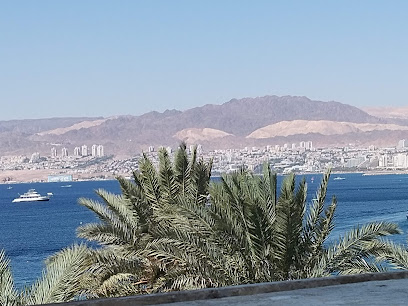
Kempinski Hotel Aqaba Red Sea
Experience unparalleled luxury and breathtaking views at Kempinski Hotel Aqaba Red Sea, your ultimate destination for relaxation and adventure.
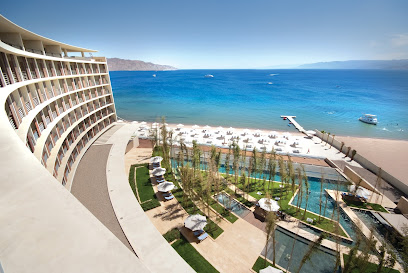
Oryx Hotel Aqaba
Experience unparalleled luxury at Oryx Hotel Aqaba, where comfort meets the stunning beauty of the Red Sea.

AlHafayer Park
Discover the tranquil beauty of AlHafayer Park, a lush coastal oasis in Aqaba perfect for relaxation, picnics, and stunning views of the Red Sea.
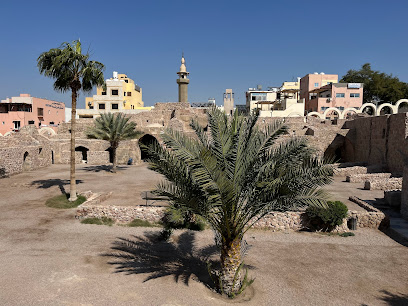
Hyatt Regency Aqaba Ayla
Experience luxury and adventure at Hyatt Regency Aqaba Ayla, a premier hotel on the stunning shores of the Red Sea in Jordan.

Berenice Beach Club / شاطئ ومنتجع برنيس العقبه
Experience the ultimate relaxation at Berenice Beach Club, where pristine beaches meet luxurious amenities in the heart of Aqaba, Jordan.
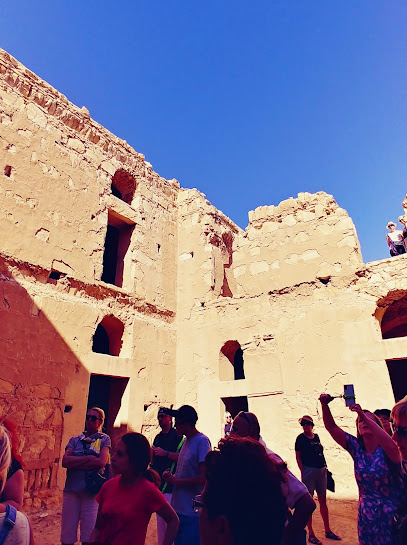
Al Mohandes Cafeteria
Discover the authentic taste of Jordanian cuisine at Al Mohandes Cafeteria in Aqaba, where affordable dishes meet rich cultural flavors.
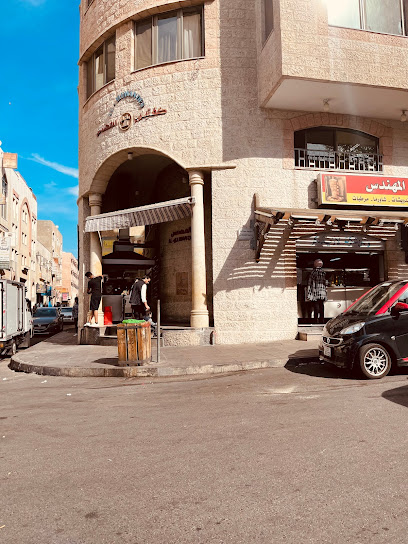
Arab Revolt Plaza
Experience the vibrant culture and historical significance of Arab Revolt Plaza in Aqaba, Jordan, a must-visit tourist attraction.
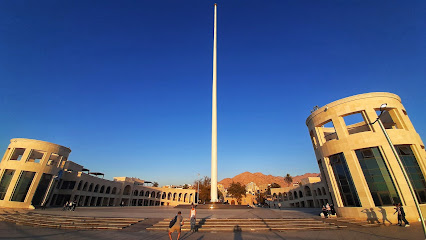
Aqaba Aquarium معرض الأحياء البحرية
Dive into the vibrant marine life of the Red Sea at Aqaba Aquarium, an educational and entertaining destination for all ages.
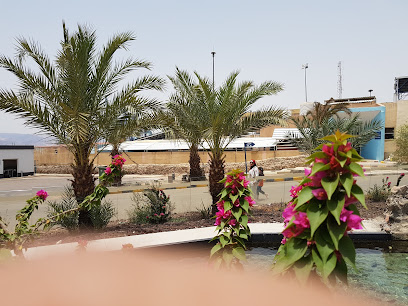
Red Coral Dive Center - Diving Aqaba
Discover the vibrant underwater world at Red Coral Dive Center in Aqaba, offering top-notch diving experiences in the stunning Red Sea.

Tunisian Hammamet Gardens
Explore the lush tranquility of Tunisian Hammamet Gardens, a picturesque oasis perfect for relaxation, cultural events, and nature lovers.
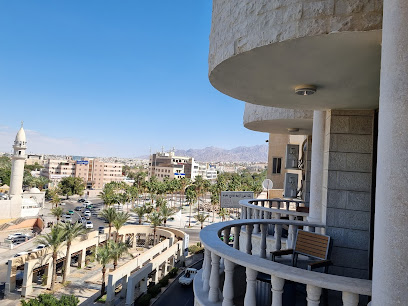
Rakwet Kanaan Restaurant & Cafe
Experience the authentic taste of Jordan at Rakwet Kanaan Restaurant & Cafe in Aqaba, offering a delightful blend of traditional cuisine and inviting ambiance.
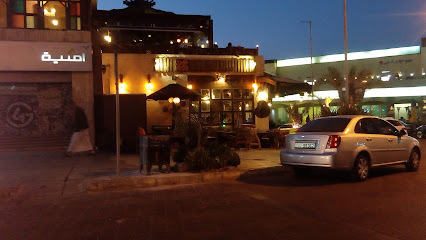
Ayla Oasis
Discover luxury and relaxation at Ayla Oasis, the premier resort hotel in Aqaba, offering exquisite dining, golf, and unforgettable attractions.
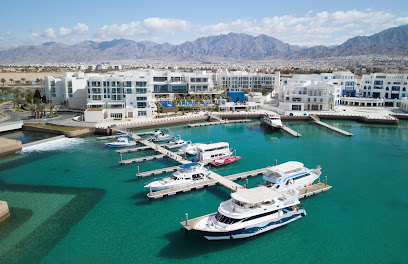
Unmissable attractions to see
Wadi Rum Protected Area
Discover the breathtaking landscapes and rich history of Wadi Rum Protected Area, a UNESCO World Heritage site in the heart of Jordan's desert.
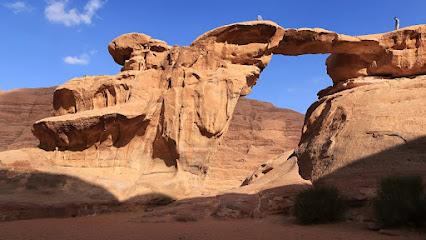
Timna Park
Experience the enchanting landscapes and rich history of Timna Park, a premier destination for hiking and exploration in the Negev Desert.
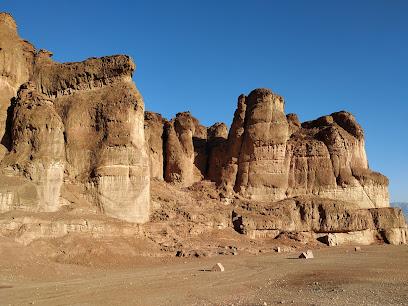
AlHafayer Park
Discover the enchanting AlHafayer Park in Aqaba, a perfect blend of nature, recreation, and stunning coastal views.
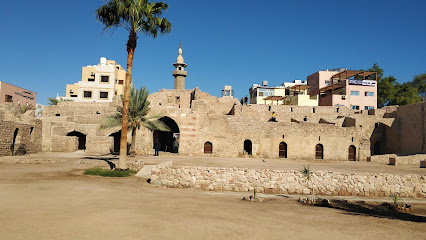
Red Canyon
Discover the stunning Red Canyon, a natural wonder in Israel, perfect for hiking, photography, and nature exploration.
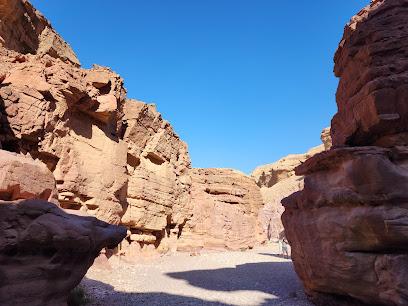
Berenice Beach Club / شاطئ ومنتجع برنيس العقبه
Discover the serene beauty of Berenice Beach Club in Aqaba, where pristine beaches meet vibrant atmosphere and unforgettable experiences await.
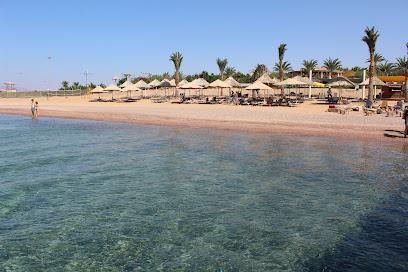
Wadi Rum Visitor Center
Discover the wonders of Wadi Rum at the Visitor Center, your essential stop for adventure and cultural insights in this stunning desert landscape.
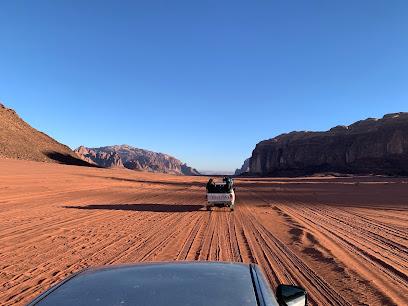
Arab Revolt Plaza
Experience the vibrant Arab Revolt Plaza in Aqaba, a cultural landmark celebrating Jordan's rich history and community spirit.
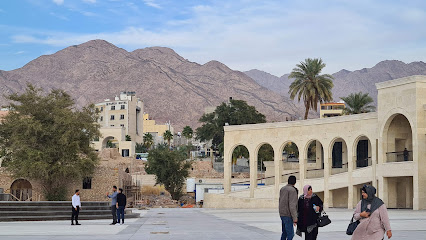
Camel Ranch- Eilat
Discover the magic of Eilat at Camel Ranch, where adventure meets Bedouin culture amidst stunning desert landscapes.
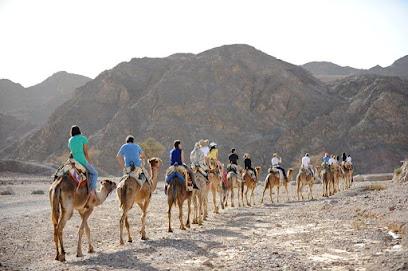
Princess Salma Park
Explore the lush beauty and vibrant culture of Aqaba at Princess Salma Park, a serene oasis perfect for relaxation and recreation.
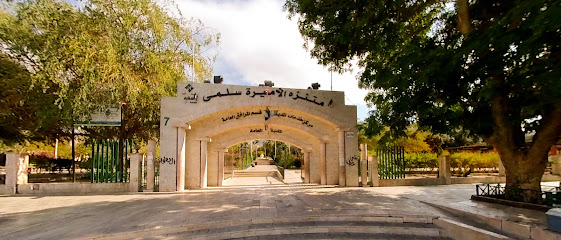
Ayla Oasis
Experience the ultimate luxury at Ayla Oasis in Aqaba, where stunning views, exquisite dining, and a world-class golf course await.
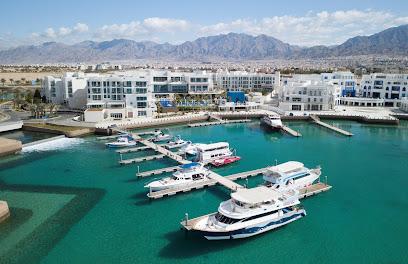
Sharif Hussein bin Ali Mosque
Experience the architectural beauty and cultural significance of Sharif Hussein bin Ali Mosque in Aqaba, a must-visit landmark for tourists.
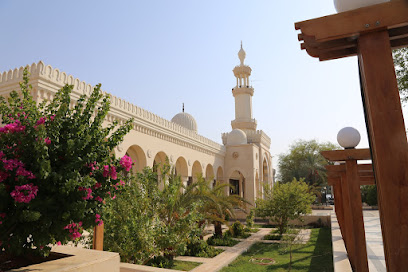
מועדון צלילה אקווה סטאר באילת, קורסי צלילה באילת - Aqua Star
Experience the breathtaking underwater wonders of Eilat with Aqua Star, the premier SCUBA tour agency offering unforgettable diving adventures.
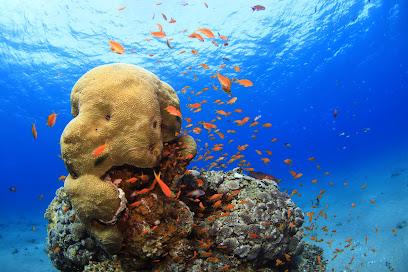
Lawrence’s Spring granite-sandstone contact
Explore Lawrence's Spring: a natural oasis in Wadi Rum, rich in history and surrounded by stunning desert landscapes.
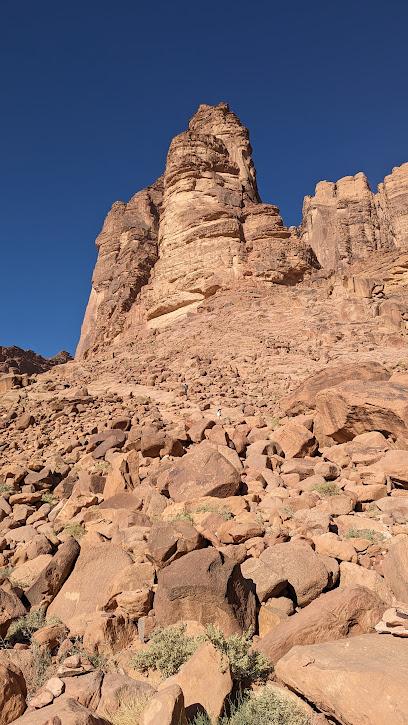
Aqaba Marine Reserve
Explore the breathtaking Aqaba Marine Reserve, a haven of coral reefs and diverse marine life along the stunning Red Sea coast.
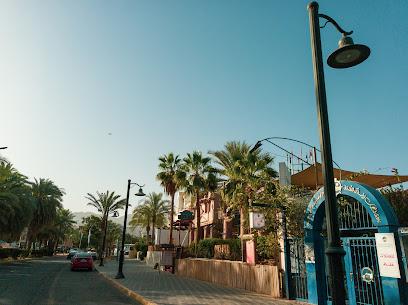
Seven Sisters Diving Site
Explore the vibrant underwater world at the Seven Sisters Diving Site in Aqaba, Jordan, a top destination for divers and marine enthusiasts.

Essential places to dine
خبزة وصينية khubza & Seneya
Discover authentic Jordanian cuisine at Khubza & Seneya in Aqaba – where every meal tells a story.
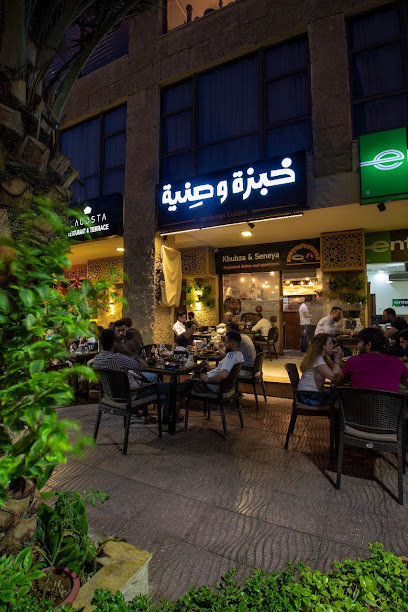
Al Mohandes Cafeteria
Experience authentic Jordanian cuisine at Al Mohandes Cafeteria in Aqaba - where delicious flavors meet affordability.
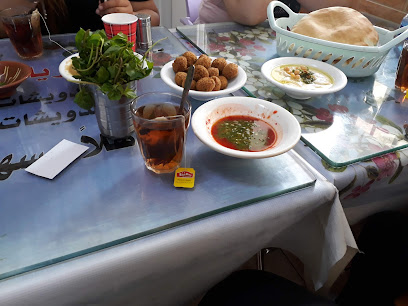
Al Shami Restaurant
Experience authentic Middle Eastern flavors at Al Shami Restaurant in Aqaba - where taste meets tradition at affordable prices.
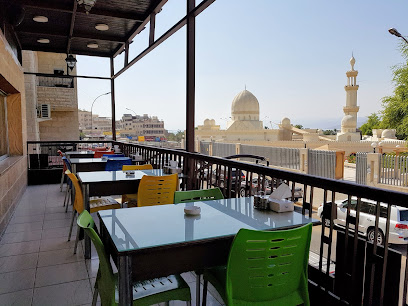
Tikka Chicken Plus
Experience the best chicken dishes in Aqaba at Tikka Chicken Plus – where flavor meets tradition.
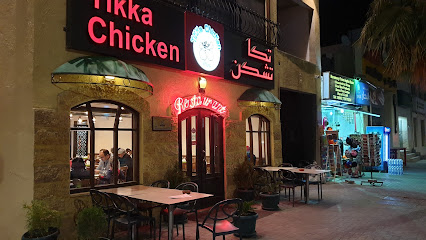
Buffalo Wings & Rings - Aqaba
Discover the ultimate destination for American cuisine in Aqaba with mouth-watering wings and fast food favorites at Buffalo Wings & Rings.
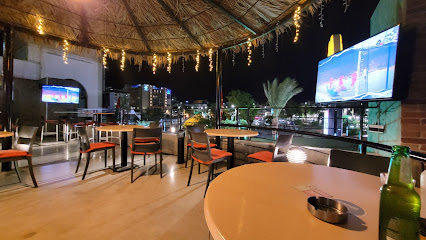
Captains restaurant مطعم الكابتن
Discover authentic Jordanian flavors at Captains Restaurant in Aqaba – where fresh seafood meets exquisite taste.
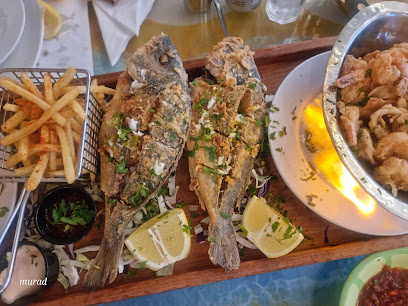
Rakwet Kanaan Restaurant & Cafe
Discover the best of Jordanian cuisine at Rakwet Kanaan Restaurant & Cafe in Aqaba - where flavor meets hospitality.
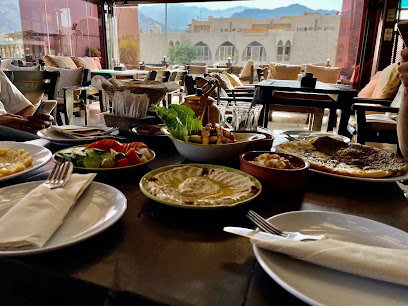
Stacoza Restaurant
Experience exquisite Jordanian cuisine at Stacoza Restaurant in Aqaba, where every dish tells a story and every meal is a celebration.
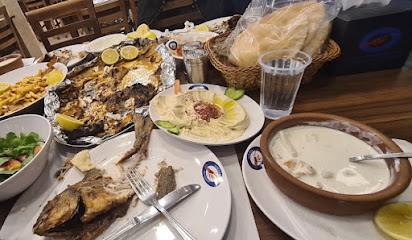
Alibaba Restaurant
Discover authentic Middle Eastern flavors at Alibaba Restaurant in Aqaba – where every meal tells a story.
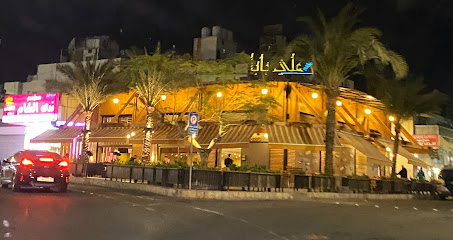
7 Spices Indian Restaurant
Experience the vibrant flavors of India at 7 Spices Indian Restaurant in Aqaba - where every dish tells a story.
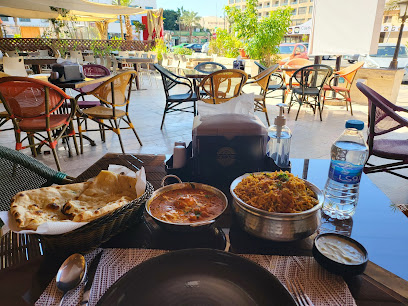
Mirchi
Experience authentic Indian cuisine at Mirchi in Ayla Marina Village, Aqaba - where every meal is a celebration of flavor.
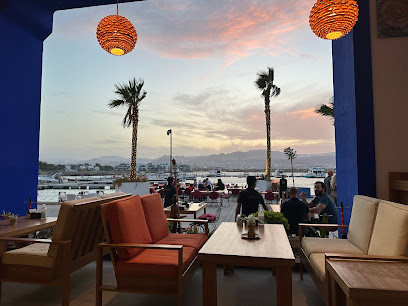
Papaya Restaurant
Savor exquisite local and international cuisine at Papaya Restaurant in Aqaba - A culinary gem by the Red Sea.
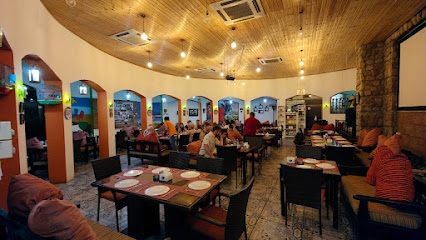
Baba Za'atar بابا زعتر
Discover authentic Middle Eastern flavors at Baba Za'atar in Aqaba—where every meal tells a story.
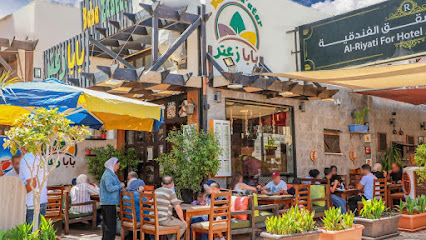
Hashem Son's
Experience authentic Jordanian cuisine at Hashem Son's in Aqaba – a culinary gem offering delicious flavors at budget-friendly prices.
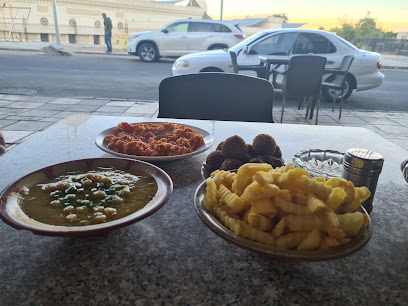
Tche Tche
Experience delectable cuisine at Tche Tche in Aqaba – where local flavors meet international flair in a vibrant dining setting.
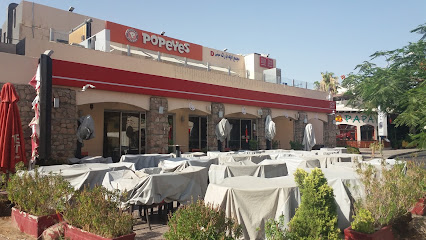
Markets, malls and hidden boutiques
Shweikh Mall
Explore Shweikh Mall in Aqaba for a unique shopping experience featuring local and international brands, dining options, and family-friendly entertainment.
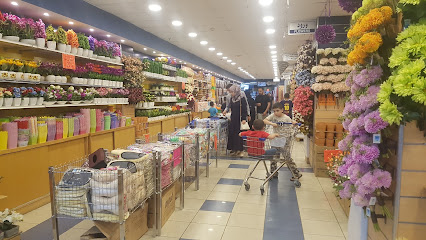
China Town
Discover the vibrant shopping scene at China Town Aqaba, where local culture meets eclectic shopping and delicious food.
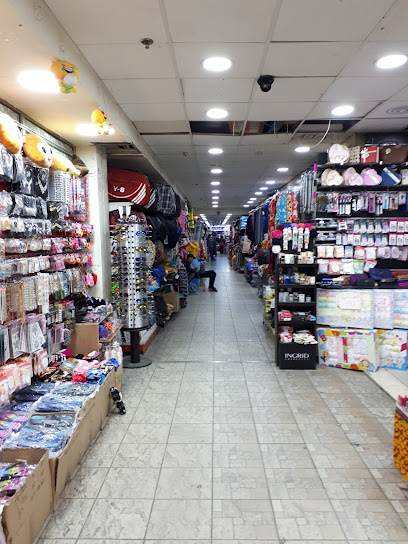
Aqaba Gateway
Discover the vibrant shopping experience at Aqaba Gateway, where local craftsmanship meets international brands in a dynamic mall atmosphere.
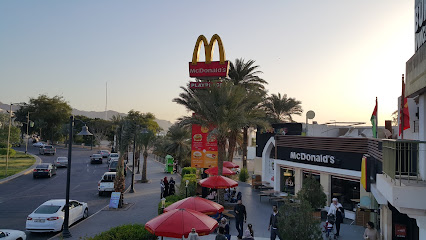
مركز التنين السريع التجاري
Explore the Dragon Mart in Aqaba: A vibrant shopping hub offering unique local crafts, international brands, and delightful dining options for every traveler.
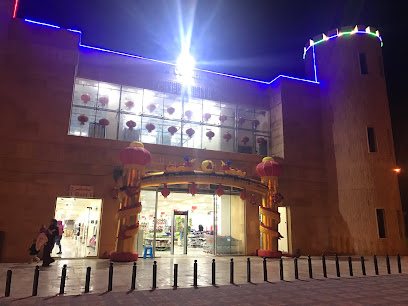
Al Rahma Mall
Explore Al Rahma Mall in Aqaba for a unique shopping experience that blends local culture with international brands, dining, and entertainment.
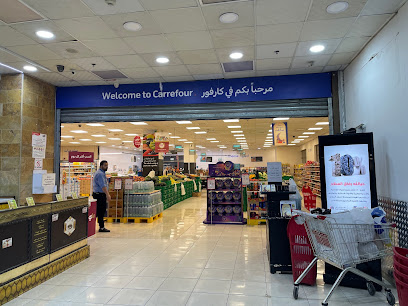
Aqaba City Center Shopping Mall
Experience the vibrant shopping and dining scene at Aqaba City Center Shopping Mall, where every visit is a delightful adventure in the heart of Jordan.
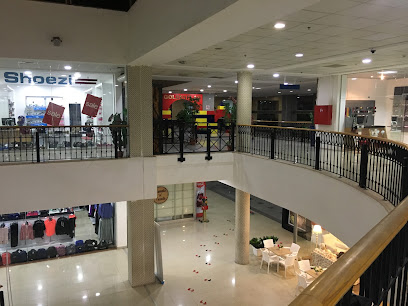
Dream Mall
Experience shopping and dining like never before at Dream Mall, the ultimate destination for tourists in Aqaba.
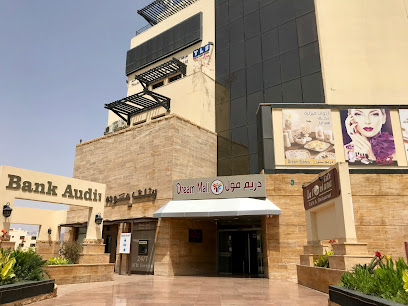
Mega Electronics
Explore the best electronics and gadgets at Mega Electronics in Aqaba, where technology meets exceptional service in a vibrant shopping environment.
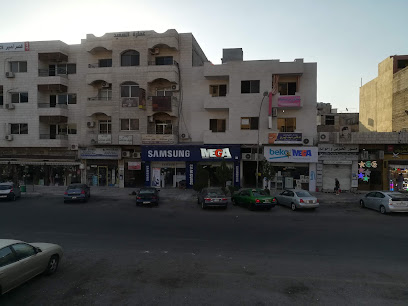
adidas Store Aqaba Downtown
Discover the ultimate destination for sports enthusiasts at the adidas Store in Aqaba Downtown, featuring exclusive apparel and high-quality athletic gear.
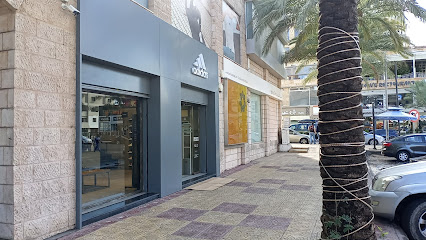
DIMITRI'S COFFEE AQABA ديميتريز العقبة
Experience the rich flavors of coffee at Dimitri's Coffee in Aqaba, where every cup tells a story of tradition and quality.
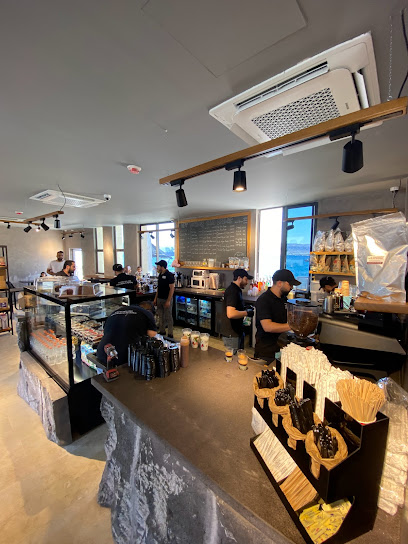
PEACE PARADISE FOR SPICES
Explore the vibrant flavors of Jordan at Peace Paradise for Spices, a must-visit store in Aqaba for spice lovers and culinary enthusiasts.
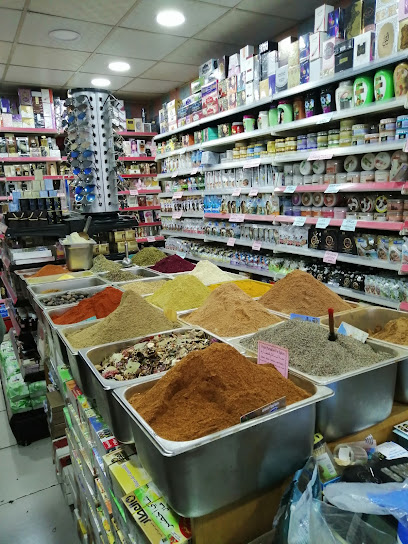
Jafra Coffee
Discover the rich flavors of Jordan at Jafra Coffee, where exquisite brews and delightful treats await every visitor in the heart of Aqaba.

Bseiso Happiness Maker
Explore Bseiso Happiness Maker in Aqaba for unique handmade souvenirs that capture the essence of Jordan's culture and craftsmanship.
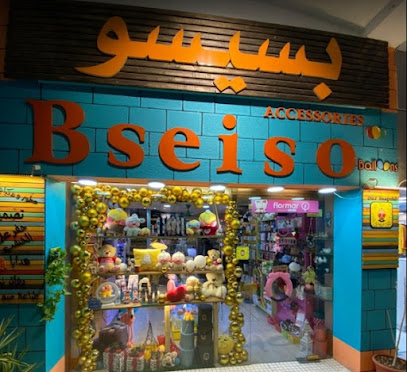
Sea mall مول البحر
Experience the best of shopping and dining at Sea Mall in Aqaba, a vibrant hub of culture and modern retail.
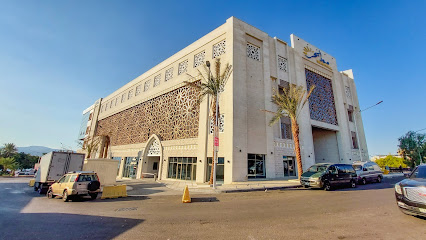
ابو وديع للطيور والحيوانات الأليفه. Abu Wadeeh Pet Shop
Discover the joy of pet ownership at Abu Wadeeh Pet Shop in Aqaba, where a variety of pets and supplies await you.
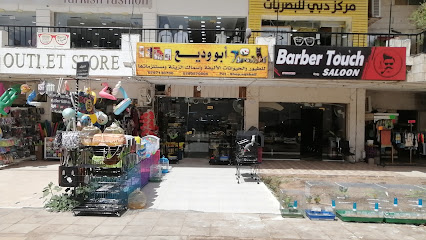
Essential bars & hidden hideouts
Rovers Return
Discover the lively atmosphere of Rovers Return, a premier pub in Aqaba offering delicious food, drinks, and live entertainment.
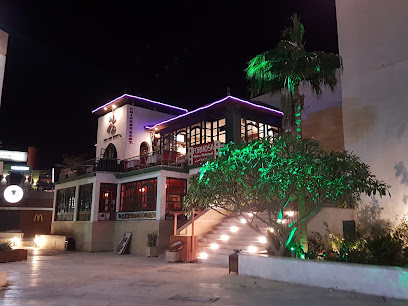
Trio
Discover Trio in Aqaba – a cocktail bar that blends creativity, flavor, and vibrant nightlife for an unforgettable experience.
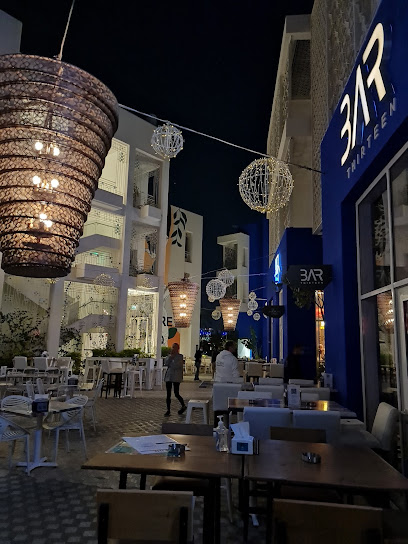
Diwan the View Rooftop Lounge
Savor exquisite cuisine and stunning views at Diwan the View Rooftop Lounge in Aqaba, a perfect blend of elegance and relaxation.
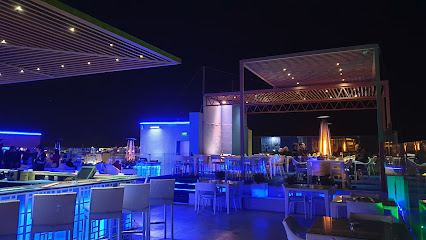
Neptune Restaurant, Grill & Beer
Discover fresh seafood and grilled delights at Neptune Restaurant, Grill & Beer in Aqaba, where culinary excellence meets a vibrant seaside atmosphere.
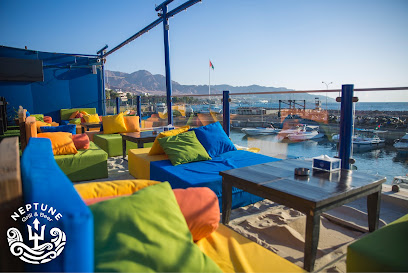
ORO Resto-Bar & Cigar
Discover luxury and relaxation at ORO Resto-Bar & Cigar in Aqaba’s Marina Village, offering exquisite drinks, fine cigars, and exceptional service.
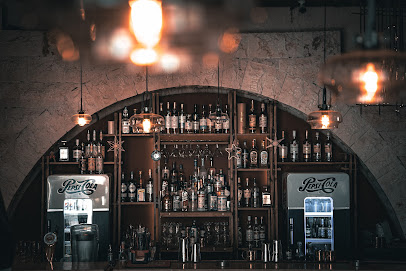
Kegs
Experience the vibrant nightlife of Aqaba at Kegs, where refreshing drinks and a lively atmosphere await every visitor.
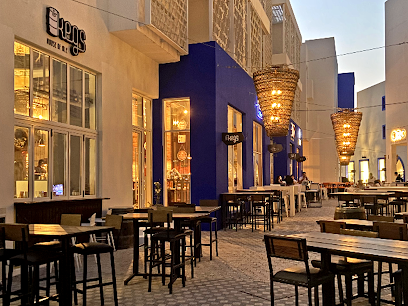
BAR THIRTEEN
Discover the vibrant nightlife of Aqaba at BAR THIRTEEN, where locals and travelers enjoy a lively atmosphere and an extensive drink menu.
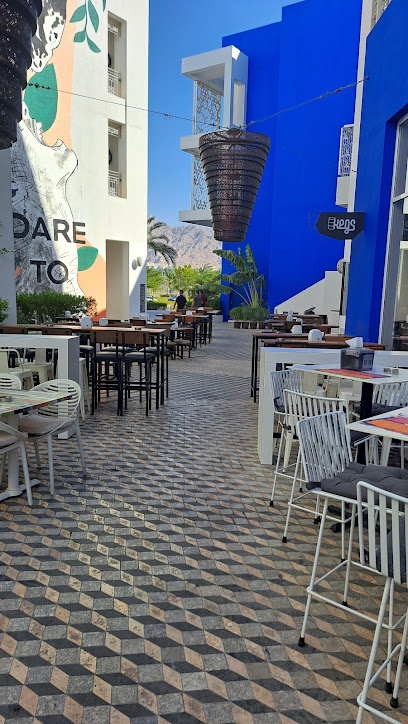
Vista lounge Hyatt Regency Aqaba Ayla
Experience breathtaking views and exquisite cocktails at Vista Lounge in Hyatt Regency Aqaba Ayla, your ultimate relaxation spot by the Red Sea.
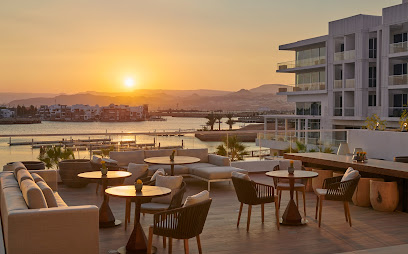
Martinis Lounge & Restaurant
Experience the taste of Aqaba at Martinis Lounge & Restaurant, where exquisite cuisine meets a vibrant atmosphere for an unforgettable night out.
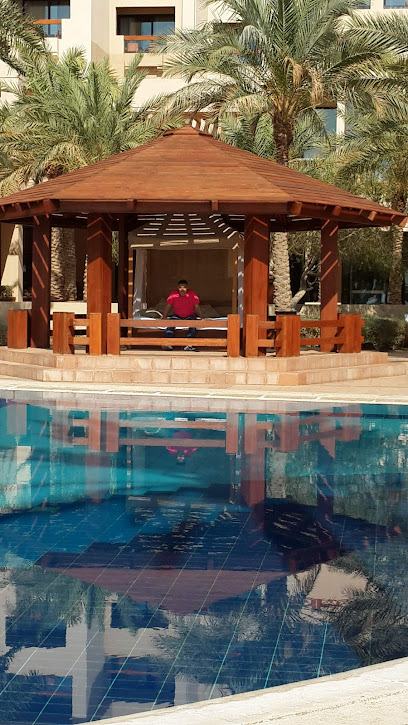
Abu Nawwas Fun Pub
Discover the vibrant atmosphere and delightful cocktails at Abu Nawwas Fun Pub in Aqaba, a perfect spot for relaxation and socializing.
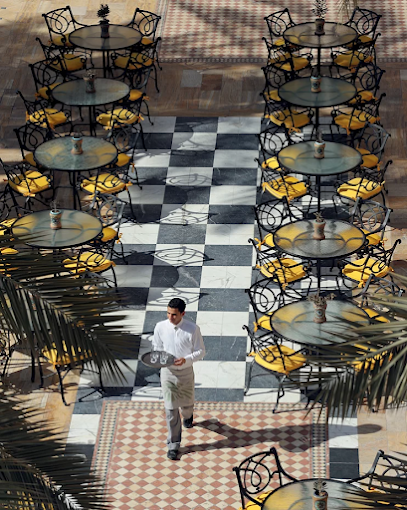
Club Intercontinental Executive Lounge
Experience luxury and tranquility at the Club Intercontinental Executive Lounge in Aqaba, the ultimate retreat for discerning travelers.
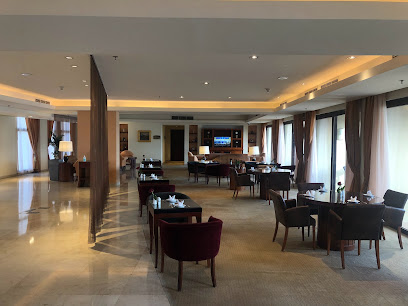
South Beach
Experience the vibrant nightlife and stunning views at South Beach, Aqaba's premier bar destination by the Red Sea.
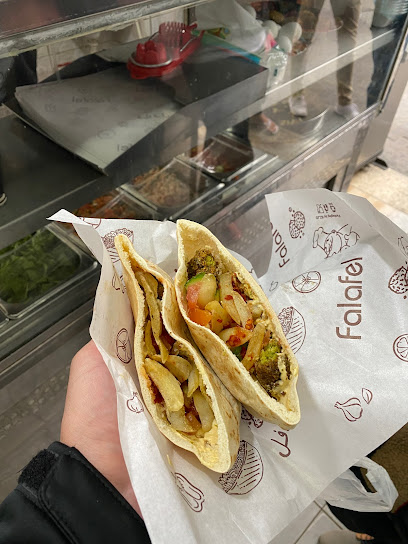
Nasma Pool Bar
Discover tranquility at Nasma Pool Bar in Aqaba, where refreshing drinks and stunning views create the perfect relaxation spot.
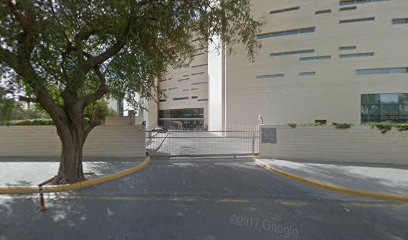
700 Lounge
Discover the elegance of 700 Lounge in Aqaba, where stunning views and a vibrant atmosphere meet exquisite drinks and light bites.
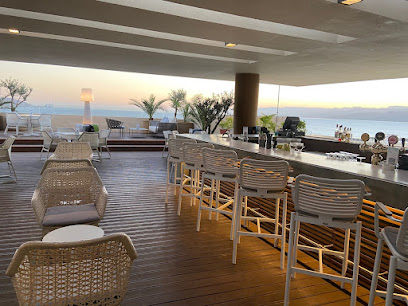
Local Phrases
-
- Helloمرحبا
[marhaba] - Goodbyeوداعا
[wada'an] - Yesنعم
[na'am] - Noلا
[la] - Please/You're welcomeمن فضلك / على الرحب والسعة
[min fadlik / 'ala al-rahb wa al-sa'ah] - Thank youشكرا
[shukran] - Excuse me/Sorryعذرا
['udhran] - How are you?كيف حالك؟
[kayfa halak?] - Fine. And you?بخير. وأنت؟
[bi-khayr. wa ant?] - Do you speak English?هل تتحدث الإنجليزية؟
[hal tatahadath al-inglizia?] - I don't understandأنا لا أفهم
[ana la afham]
- Helloمرحبا
-
- I'd like to see the menu, pleaseأريد أن أرى القائمة، من فضلك
[uridu an ara al-qaimah, min fadlik] - I don't eat meatأنا لا آكل اللحم
[ana la akl al-lahm] - Cheers!صحتين!
[sahatin!] - I would like to pay, pleaseأود أن أدفع، من فضلك
[awadu an adfa', min fadlik]
- I'd like to see the menu, pleaseأريد أن أرى القائمة، من فضلك
-
- Help!النجدة!
[al-najdah!] - Go away!انصرف!
[ansarif!] - Call the Police!اتصل بالشرطة!
[iatisil bialshurta!] - Call a doctor!اتصل بالطبيب!
[iatisil bialtabib!] - I'm lostلقد ضللت الطريق
[laqad dalalt al-tariq] - I'm illأنا مريض
[ana mareed]
- Help!النجدة!
-
- I'd like to buy...أريد أن أشتري...
[uridu an ashtari...] - I'm just lookingأنا فقط أتطلع
[ana faqat atatallu'] - How much is it?كم هو ثمنه؟
[kam huwa thamanuh?] - That's too expensiveهذا غالي جدا
[hatha ghali jiddan] - Can you lower the price?هل يمكنك خفض السعر؟
[hal yumkinuka khafd al-sa'r?]
- I'd like to buy...أريد أن أشتري...
-
- What time is it?كم الساعة؟
[kam al-sa'ah?] - It's one o'clockالساعة الواحدة
[al-sa'ah al-wahidah] - Half past (10)النصف بعد (العاشرة)
[al-nisf ba'd (al-'ashirah)] - Morningالصباح
[al-subah] - Afternoonالعصر
[al-'asr] - Eveningالمساء
[al-masa'] - Yesterdayأمس
['ams] - Todayاليوم
[al-yawm] - Tomorrowغدا
[ghadan] - 1واحد
[wahid] - 2اثنان
[ithnan] - 3ثلاثة
[thalathah] - 4أربعة
[arba'ah] - 5خمسة
[khamsah] - 6ستة
[sittah] - 7سبعة
[sab'ah] - 8ثمانية
[thamaniah] - 9تسعة
[tis'ah] - 10عشرة
['asharah]
- What time is it?كم الساعة؟
-
- Where's a/the...?أين ال...؟
[ayn al...?] - What's the address?ما هو العنوان؟
[ma huwa al-anaan?] - Can you show me (on the map)?هل يمكنك أن تريني (على الخريطة)؟
[hal yumkinuka an tarini (ala al-kharitah)?] - When's the next (bus)?متى يأتي الحافلة التالية؟
[mata ya'ti al-hafilah al-taliyah?] - A ticket (to ....)تذكرة (إلى ...)
[tadhkirat (ila ...)]
- Where's a/the...?أين ال...؟
History of Aqaba
-
Aqaba, historically known as Ayla, has a history that dates back to around 4000 BCE. The city's strategic location along the Red Sea made it a significant hub for trade and commerce. Archaeological evidence indicates that it was an important settlement for the Edomites, who were known for their copper mining and trade activities.
-
During the 4th century BCE, Aqaba came under the influence of the Nabateans, a nomadic Arab people who built the remarkable city of Petra. Aqaba, known as Ailana during this period, served as the Nabatean's key port, facilitating trade across the Red Sea and beyond. The Nabateans’ sophisticated water management system and architectural prowess left a lasting mark on the region.
-
In 106 CE, the Roman Empire annexed the Nabatean Kingdom, including Aqaba, renaming it Aelana. The Romans recognized its strategic importance and developed it further, constructing roads and fortifications. The city continued to thrive under Byzantine rule, becoming an important center for Christianity, evidenced by the ruins of early churches found in the area.
-
Aqaba was conquered by Muslim forces in the 7th century CE during the rapid expansion of Islam. Under the Umayyad Caliphate, the city was known as Ayla and became an important station on the pilgrimage route to Mecca. The Umayyads built the Ayla Fort, remnants of which can still be seen today, underscoring the city's continued strategic and religious significance.
-
In the 12th century, the Crusaders captured Aqaba and built a fortress on Pharaoh's Island to control the trade routes. However, their hold on the region was short-lived. Saladin's Ayyubid forces recaptured Aqaba in 1182, restoring Islamic rule and reinforcing its importance as a trade and pilgrimage hub.
-
Aqaba fell under Ottoman control in the early 16th century and remained part of the Ottoman Empire for around four centuries. The Ottomans constructed the Aqaba Castle, which stands as a significant historical landmark. During this period, Aqaba's importance waned slightly due to the shifting trade routes but remained a vital stop for pilgrims.
-
In 1917, during World War I, Aqaba gained international attention as the site of a pivotal battle. Led by T.E. Lawrence, also known as Lawrence of Arabia, and the Arab forces, Aqaba was captured from the Ottomans. This victory was a significant milestone in the Great Arab Revolt, contributing to the eventual downfall of Ottoman rule in the region.
-
Post-World War I, Aqaba became part of the Emirate of Transjordan, which later became the Hashemite Kingdom of Jordan. In recent decades, Aqaba has transformed into a bustling economic hub, thanks to strategic investments in the Aqaba Special Economic Zone. The city is now a popular tourist destination known for its beautiful beaches, coral reefs, and historical landmarks.
Aqaba Essentials
-
Aqaba is accessible by air through King Hussein International Airport, located approximately 10 kilometers north of the city. Direct flights are available from several major cities in the Middle East and Europe. Alternatively, visitors can fly into Queen Alia International Airport in Amman and take a domestic flight or a four-hour drive to Aqaba. There are also bus services from Amman to Aqaba operated by JETT and other companies. Additionally, Aqaba can be reached by ferry from the Egyptian port of Nuweiba.
-
Aqaba is a small city, making it easy to navigate on foot. For longer distances, taxis are readily available and relatively inexpensive. Many hotels also offer shuttle services to popular attractions. Public buses operate within the city and connect to nearby areas, but schedules can be irregular. Renting a car is an option for those looking to explore the surrounding regions, including Wadi Rum and Petra.
-
The official currency of Jordan is the Jordanian Dinar (JOD). Credit cards are widely accepted in hotels, restaurants, and larger shops. However, it is advisable to carry some cash, particularly for small purchases and in local markets. ATMs are available throughout Aqaba, and many offer services in multiple languages.
-
Aqaba is generally considered a safe destination for tourists. However, standard precautions should be taken to ensure personal safety. Avoid walking alone at night in unfamiliar areas and keep an eye on personal belongings in crowded places. While Aqaba does not have specific high-crime areas targeting tourists, it is always best to stay vigilant and aware of your surroundings.
-
In case of emergency, dial 911 for immediate assistance. Aqaba has a well-equipped hospital and several clinics for medical emergencies. It is recommended to have travel insurance that covers medical emergencies. Pharmacies are available in the city for minor health issues and over-the-counter medications.
-
Fashion: Do dress modestly, particularly when visiting religious or public sites. Avoid wearing revealing clothing. Religion: Do respect local customs and traditions. When visiting mosques, dress conservatively and remove shoes before entering. Public Transport: Do be respectful and avoid eating or drinking on public transport. Greetings: Do greet people with a handshake. Men should wait for women to extend their hand first. Eating & Drinking: Do try local dishes and accept food offerings graciously. Don’t refuse hospitality, as it is considered impolite.
-
To experience Aqaba like a local, visit the local souks and markets, where you can buy fresh produce, spices, and traditional Jordanian goods. Engage with locals, as they are often friendly and willing to share stories about their culture and history. Don't miss the chance to try local seafood dishes, as Aqaba is known for its fresh seafood. For a unique experience, take a glass-bottom boat tour to see the vibrant marine life of the Red Sea.
Trending Landmark in Aqaba
-
منتجع وسبا موڤنبيك تالا باي العقبة
-
منتجع وريزيدنسزز موڤنبيك العقبة
-
Al-Ghandour Beach
-
Kempinski Hotel Aqaba Red Sea
-
Oryx Hotel Aqaba
-
AlHafayer Park
-
Hyatt Regency Aqaba Ayla
-
Berenice Beach Club / شاطئ ومنتجع برنيس العقبه
-
Al Mohandes Cafeteria
-
Arab Revolt Plaza
-
Aqaba Aquarium معرض الأحياء البحرية
-
Red Coral Dive Center - Diving Aqaba
-
Tunisian Hammamet Gardens
-
Rakwet Kanaan Restaurant & Cafe
-
Ayla Oasis
Nearby Cities to Aqaba
-
Things To Do in Eilat
-
Things To Do in Wadi Rum
-
Things To Do in Petra
-
Things To Do in Ma'an
-
Things To Do in Dahab
-
Things To Do in Dana
-
Things To Do in Tafilah
-
Things To Do in Sharm El Sheikh
-
Things To Do in Beersheba
-
Things To Do in Kerak
-
Things To Do in Tabuk
-
Things To Do in Masada
-
Things To Do in Ein Gedi
-
Things To Do in Dead Sea
-
Things To Do in Suez













